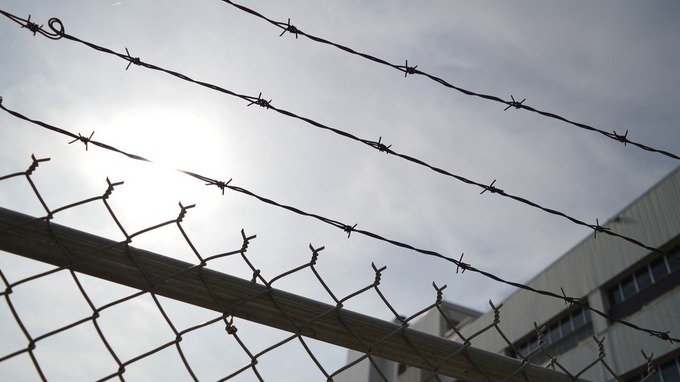Research In Action
Research In Action
Breadcrumb

A note from Joel Fein, MD, MPH, Co-director of CHOP’s Violence Prevention Initiative (VPI): The following post is authored by Ellyn Butler, a Research Experiences for Undergraduates (REU) intern at the Center for Injury Research and Prevention, who worked with VPI’s Violence Intervention Program team this summer.
I recently had the opportunity to visit Philadelphia’s Eastern State Penitentiary with members of the Violence Prevention Initiative and Pennsylvania’s Secretary of Corrections, John Wetzel. During the tour, we met with this historic site’s curators of a new exhibit called “Prisons Today.” One of the topics we discussed was childhood trauma and the experience of having a mother who is imprisoned.
I learned that women are the fastest growing prison population in the United States. According to The Sentencing Project, between 1980 and 2014, the female prisoner population multiplied by eight, with black women being incarcerated at twice the rate of white women in 2014. Following incarceration, women struggle to maintain connections with their social networks due to strict visitation policies and the geographic distance between prisons and their homes. This complicates the maintenance of the mother-child relationship, and made me question—what are the short- and long-term outcomes for these children?
Children who were previously being cared for by only their mother are placed into a number of caregiving situations after their mother’s incarceration: 50 percent are placed with grandmothers, 25 percent with fathers, and 8-10 percent with the welfare system. In addition to this physical transition of where they live and who cares for them, the mental health of these children may also be adversely impacted. Adverse Childhood Experiences (ACEs), such as incarceration of a parent, have been shown to have a number of deleterious effects on children, in both the short- and long- term. ACEs have been tied to increased risk for obesity, diabetes, depression, suicide attempts, STDs, heart disease, cancer, stroke, broken bones, smoking, alcoholism, drug use, and school drop-out. Even one ACE increases a child’s risk for these negative outcomes, but the more ACEs a child experiences, the more likely it is that they will experience these negative outcomes.
Fortunately, there are action steps that can and should be taken to help these children and families:
- Implement better transportation services and extended visitation hours. If interaction with the mother is deemed beneficial by relevant personnel, then helping to maintain the mother-child relationship through easier access during the incarceration is imperative. MoMobile, sponsored by Philadelphia’s Maternity Care Coalition, educates incarcerated women about childcare options and connects them to resources that help them to be better caregivers upon their release.
- Advocate for greater access to evidenced-based treatments. For children experiencing adverse mental health outcomes after their mother’s incarceration, there are treatments such as Trauma-Focused Cognitive Behavioral Therapy (TF-CBT). TF-CBT is a highly effective treatment for the caregiver and child with respect to a host of post-trauma related mental health issues, including depression and post-traumatic stress disorder. There are both potential logistical and emotional challenges of conducting therapy in prisons, which makes TF-CBT an especially great option for this population because it has shown to be effective with caregivers other than parents, and therefore children can still benefit from this therapy when living with non-parent caregivers or in foster care situations.
For more information about supporting the mother-child bond among women who are incarcerated, please click here.
Reference:
Penn Program on Documentaries and the Law (2011). Mothers in Prison: The impact of incarceration on motherhood. Retrieved from https://www.youtube.com/watch?v=pqTXt3jqchQ

